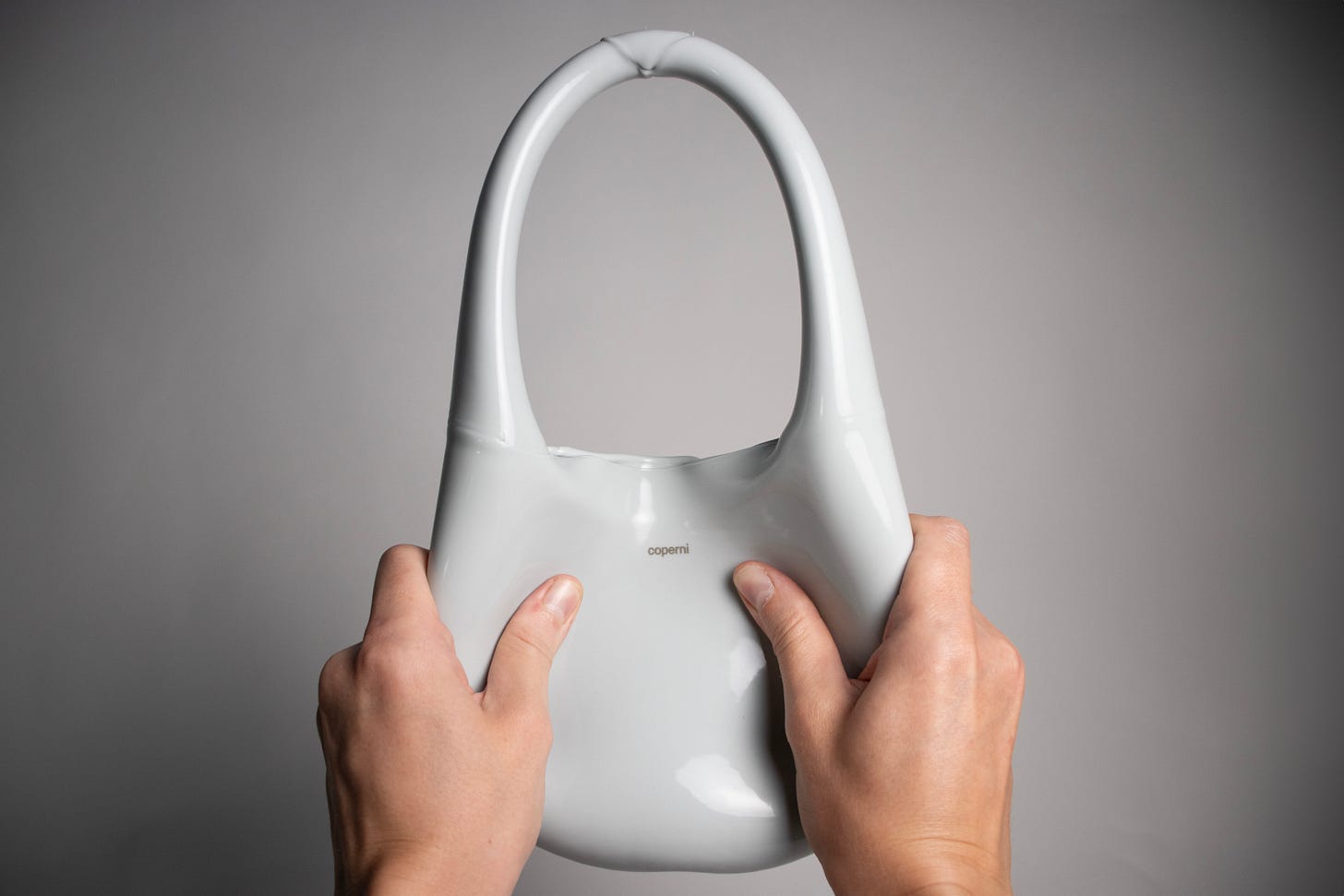Design for Viscosity, Not Gravity
An Interview with Rapid Liquid Print ahead of CDFAM Amsterdam
Rapid Liquid Print (RLP) emerged from MIT’s Self-Assembly Lab with an unconventional approach to additive manufacturing: silicone extrusion printed directly into a suspended support gel. This Gravity Free Manufacturing process eliminates the need for support structures and allows for continuous toolpaths across complex geometries—enabling the production of soft, isotropic parts with minimal post-processing and material constraints.
In this interview, the RLP team outlines how their process logic—shaped by viscosity, nozzle behavior, and surface sequencing—drives how they design and manufacture parts. The discussion includes their collaboration with Coperni Paris on the Ariel Swipe Bag, which premiered at Paris Fashion Week and was later manufactured for retail release, as well as how the same decomposition and toolpath strategies apply to prosthetics, gaskets, and soft industrial components.
“We improved on the unique ways in which our proprietary software can automatically guide the decomposition of this geometry into a sequence of printable toolpaths.”
While fashion may not be RLP’s core focus, the constraints of the Swipe Bag project provided a useful prompt for refining methods now applied in sectors like healthcare and automotive—where the ability to print silicone parts with tuned stiffness, embedded chambers, or reinforced openings offers a clear advantage.
This is a conversation about process-aware design: how software, material behavior, and geometric control come together in a system built from the ground up for production—not just prototyping.
📍 Meet the Rapid Liquid Print team at CDFAM Amsterdam, July 9–10, 2025
See parts in person, discuss your application, or just learn more about how this process might apply to your design challenges.




